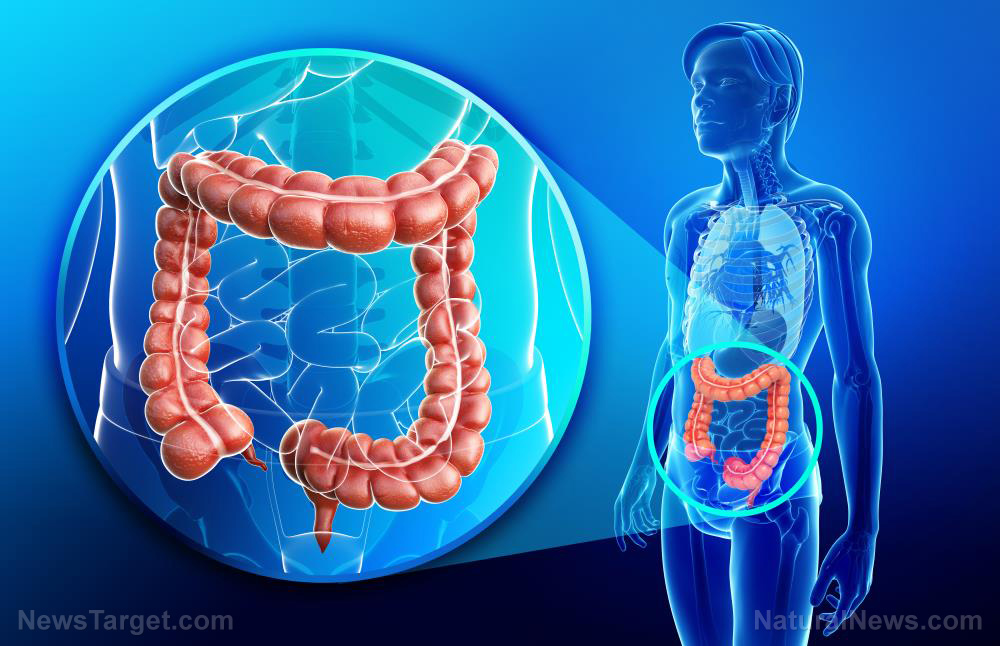Colorectal cancer is a microbial disease: Changes in the gut microbiome can be used for early detection
08/15/2020 / By Virgilio Marin

A study published in the journal Nature Medicine found an increase in specific microorganisms in the gut which are linked to colorectal cancer. The researchers said that these microorganisms can potentially be used to detect the disease long before it progresses to late-stage cancer.
“Our results show that changes in the gut microbiome are present at the very early stages of colorectal cancer development, which could potentially provide vital diagnostic and causative clues for this disease,” said Shinichi Yachida, one the study’s authors.
Yachida also adds that the findings of their study demonstrate how colorectal cancer is not only caused by genetic predilection. Interestingly, the gut microbiome may also play an important part in the development of this cancer.
Detecting specific bacteria to diagnose early colorectal cancer
Colorectal cancer is the third most common cancer in the United States. The American Cancer Society estimates that 104,610 new cases of colon cancer and 43,340 new cases of rectal cancer will be diagnosed in 2020. Meanwhile, 53,200 deaths are projected in the same year.
Although these numbers are alarming, colorectal cancer is also a slow-moving disease. This means that the progression from early-stage to late-stage cancer will take some time. There’s a bigger window for the detection of the disease and preventing it from worsening. Thus, diagnosis is key to fighting the disease.
In the study, researchers are looking at one possible way to diagnose colorectal cancer early in its development. They conducted a DNA analysis of fecal samples, which were taken from more than 616 patients aged 20 to 90 years old. Then they assessed the characteristics of their gut microbiome in relation to colorectal cancer.
They found that those with early-stage cancer had twice to thrice the number of two bacterial types compared to healthy individuals. These bacteria are Atopobium parvulum and Actinomyces odontolyticus, and are also teeming in the mouth of colorectal cancer patients. Moreover, the team recorded differences in amino and bile acid levels in feces between individuals with early-stage cancer and healthy individuals. (Related: Epigenetics in action: Mouth bacteria activate cancer genes that cause colorectal cancer.)
Such differences can serve as markers of the disease and be used in early diagnosis, said the researchers.
Furthermore, they suggest that colorectal cancer may also be a microbial disease. Currently, the cause of colorectal cancer is unknown while risk factors are either demography-related or genetic. The findings of the study may help scientists in unraveling the disease.
The next step is to investigate the relationship between the gut microbiome and tumor characteristics in individual patients with colorectal cancer. This way, experts can expand their understanding of the role of the microbiome in the development of the disease.
The gut microbiome in other health conditions
The gut microbiome refers to the large populations of microorganisms in your gut. They play a major role in digestion and overall health, having been connected to various physiological systems and health conditions.
For one, the gut microbiome is associated with obesity. Studies showed that having a smaller number of certain bacteria can predispose you to being overweight. The genes may be partly to blame, as they can determine the types of bacteria that populate your gut. (Related: Gut bacteria plays a role in youth obesity.)
On other other hand, gut bacteria can also contribute to the development of lymphoma, a cancer of the white blood cells. In particular, Lactobacillus johnsonii can elevate the risk of lymphoma in mice compared to those with a different composition of gut bacteria. This finding may not be too surprising as the gut microbiome plays an important part in the immune system by communicating with immune cells.
Furthermore, mental health is also linked to the gut microbiome, adding yet another facet to its incredible portfolio of roles. That’s because gut bacteria produce certain neurochemicals that are used by the brain in regulating physiological and mental processes — including memory, learning and mood. In fact, gut bacteria makes about 95% of the body’s supply of serotonin, which is said to stabilize mood, feelings of well-being and happiness.
Given the essential roles of the gut microbiome, having a balanced composition of gut bacteria is important for good health. Eating fiber-rich foods will help greatly in feeding the good, friendly bacteria that the body needs.
Learn more about the foods that are beneficial to gut health at Veggie.news.
Sources include:
Tagged Under: anti-obesity, cancer treatment, Colorectal Cancer, disease treatments, fight obesity, gut bacteria, gut health, gut microbiome, immune system, lymphoma, mental health, prevention, serotonin
RECENT NEWS & ARTICLES
COPYRIGHT © 2017 FIGHTOBESITY.NEWS
All content posted on this site is protected under Free Speech. FightObesity.news is not responsible for content written by contributing authors. The information on this site is provided for educational and entertainment purposes only. It is not intended as a substitute for professional advice of any kind. FightObesity.news assumes no responsibility for the use or misuse of this material. All trademarks, registered trademarks and service marks mentioned on this site are the property of their respective owners.




















